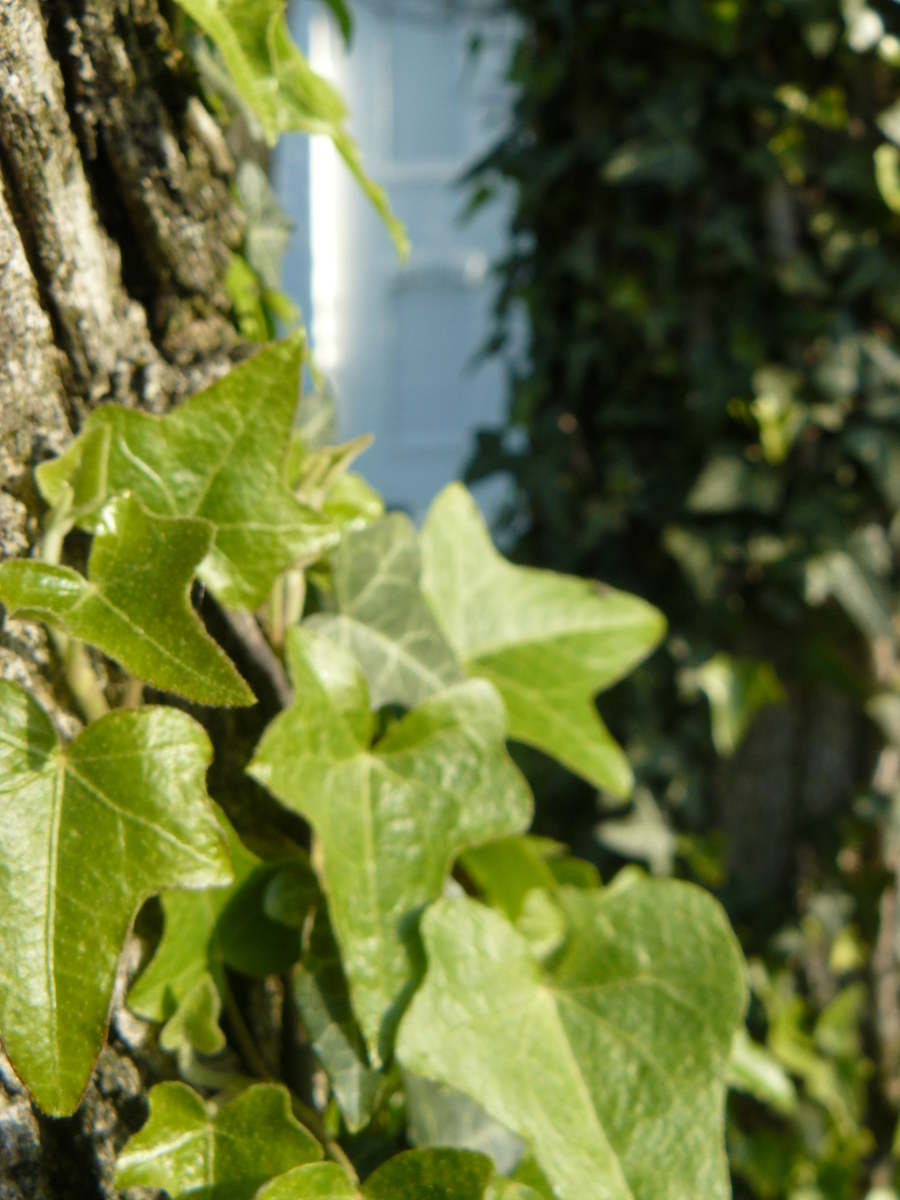 Location Taken: Savage, Maryland
Location Taken: Savage, Maryland
Time Taken: April 2010
I really like English Ivy. It’s such a pretty plant, one that really shows the beauty of a simple leaf. It doesn’t have ostentatious flowers and stays green all year long, so it’s great for keeping a consistent color in the place you plant it. It comes in a small variety of colors, all fine shades of green, including many of my favorite dark greens. It has a lot of history, and lends a certain dignity to any building it’s growing on. The best schools in the US are known as Ivy League for a reason: many of them are old schools with plenty of ivy on the buildings. It’s easy to grow, and easier to care for.
And yet, I shall never plant it in any garden.
It’s invasive, you see.
We do actually have some English Ivy in my Mom’s garden. My sister also likes the plant, and got a small hanging pot of the ivy when she was young. Mom eventually planted it by the deck on the side of our house. It’s still growing quite happily all over the bottom area of the deck, much larger than it was when it started. I think Mom’s tried to eradicate it a few times, but it hasn’t worked so far.
It’s the very qualities that make it so easy to care for that make it so likely to get out of hand. It grows well in all light levels, and in poor soil. It can handle droughts and frost. I’ve never seen a single bug-bitten ivy leaf. All the standard things that wipe out plants, it just shakes off. In some ways, I’d like a non-invasive variety, but that would mean more care and maintenance would be needed. It’s a bit of a conundrum.
It’s rough on what it grows on, too. It may look really pretty growing up the brickwork of a house all the way to the eaves, or winding its way up a tree as in the photo, but it’s not just sticking to the wall by magic. It has small roots it digs into whatever it is climbing up. This can cause problems for brick houses, since brick is actually fairly fragile to such damage. A large ivy infestation will slowly pry apart the bricks, leading to it failing far earlier than it should have. Kudzu does the same thing. At least it means abandoned buildings don’t sit around being eyesores for too long, since nature is so good at bringing down buildings. But it does mean the owners of unabandoned buildings have to be careful about what they let grow on their houses.
